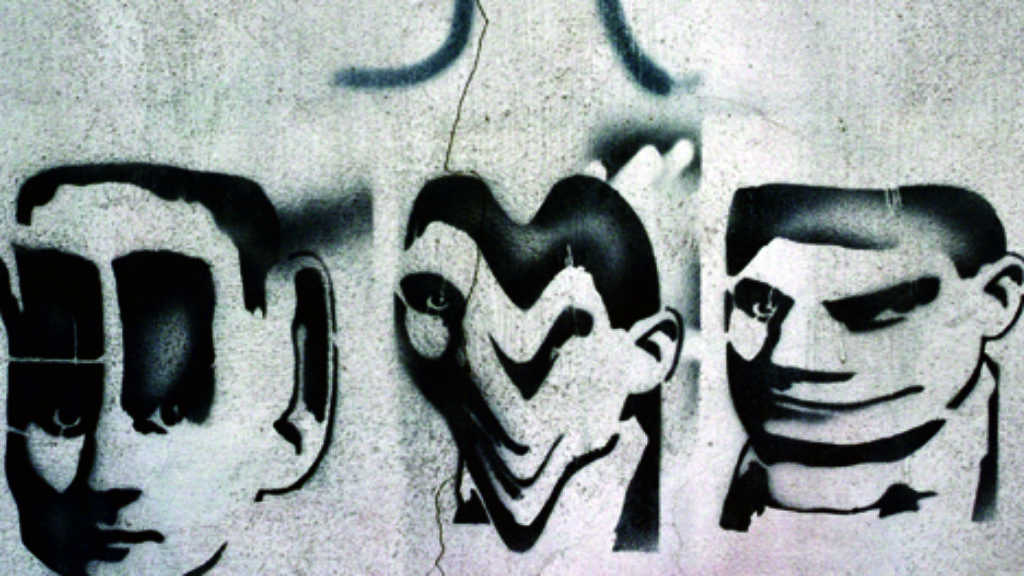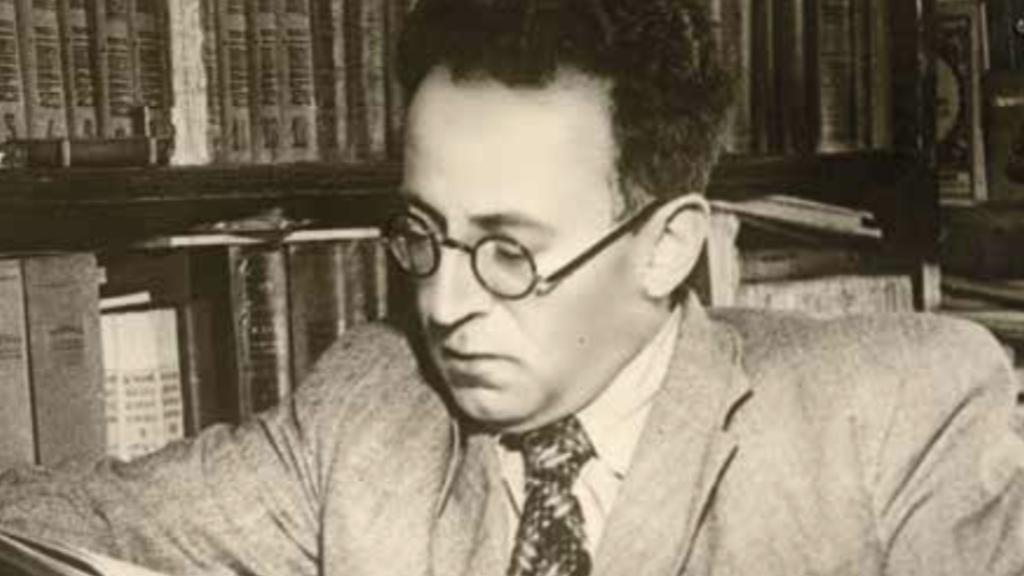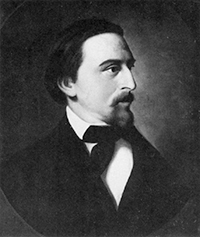An Old-New Bigotry? A Response
Both Jonathan Karp’s and Reviel Netz’s essays are written in the shadow of October 8—not the day of the unthinkably brutal Hamas massacre in southern Israel, but the day after. Or even, as Netz remarks, the very afternoon of that terrible day itself. For that was when college student activists, their off-campus allies, and more than a few of their professors commenced their furious reaction—against Israel. And that was when liberal professors like Professors Karp and Netz, both distinguished scholars in the humanities with long, close, and complicated relationships with Israel, reacted in shock not only to the barbarism of Hamas but to the moral and intellectual barbarism of many of their students and colleagues. “I failed to notice, or at least to take seriously,” Netz writes, “that otherwise seemingly decent people might hate everything Israeli.”
For while Israel was still counting its dead (roughly 1200) and coming to grips with the viciousness with which they were murdered, not to speak of the dozens of rapes and hundreds of kidnappings, thirty-three Harvard student groups released a now-infamous statement holding “the Israeli regime entirely responsible for all unfolding violence.” Student and faculty activists at Yale, Columbia, Berkeley, and so on soon followed, as did radical groups off campus and on social media, some of whom celebrated the massacre itself. And then there were the angry, intimidating demonstrations, the tearing down of posters of kidnapped Israelis and, when Israel’s military response began—or rather before it began—the accusation that it was committing genocide. In short, there was a willed indifference to the monstrous murder, rape, and kidnapping of Israelis, followed immediately by the claim that Israelis were themselves the monsters.
Of course, this is all, by now, old news, and doubly so. First of all, the demonization of Israel has been a feature of parts of the progressive left for at least half a century; it did not begin on October 8, 2023. Second, over the last three months, there have been op-eds, congressional hearings, and two (as of this writing) Ivy League presidents have lost their jobs for their apparent tolerance of precisely and only this sort of intolerance. But what sort of intolerance is it exactly?
One plausible answer is that this really is the oldest of news: the intolerance in question is just a form of antisemitism. After all, the student groups and protesters were explicitly exonerating a pogrom perpetrated by a group whose public charter calls for the murder of Jews. And even if we understand the intolerance as perhaps a misguided but sincere political criticism, it subjects the Jewish state and its citizens to a level of vitriolic criticism reserved for no other nation. Finally, it often traffics in classic antisemitic tropes, images, and stereotypes, such as Karp’s example of the U.S. Labor Against Racism and War poster, which caricatures Israel as a hideous bug-like Jew out of Der Stürmer, but perhaps also alludes to the notion, going all the way back to Saint Augustine, that Jews bear the indelible mark of Cain.
And yet, Karp and Netz argue in their different but complementary ways, the shocking reaction to the Hamas massacre is not really old news and it is not (quite) antisemitism since, among other things, it is not a hatred for Jews and Judaism per se, though it is certainly related. Rather, this hatred for all things Israeli is a relatively new form of bigotry, which is now ascendant in progressive circles on campuses and related cultural precincts and must be understood and answered on its own terms.
Karp calls this new(ish) bigotry “anti-Israelism” and tries to capture its distinctive ideological and emotional flavor, while Netz concentrates on sketching a cultural theory for its existence. Both writers focus on the seeming anomalousness of Israel’s history and its national character as the key to understanding the phenomenon.
In a striking passage, Karp writes that
Anti-Israelism builds on the legacy of anti-semitism but almost as an inversion. Because Israel refuses to behave as Jews were alleged to behave—as a people who cowered in the shadows, manipulating events—Israeliness, with its frank, in-your-face character, comes as a shock. Whereas antisemites long falsely accused Jews of physical cowardice, Israelis’ widespread military service and formidable reputation as a fighting force invites a fundamentally different set of libels. . . . Jewish stereotypes served to maintain the useful fiction that Jews were a known quantity, a more or less manageable minority in a non-Jewish polity. . . . Israel had broken the rules of the game in a way that no other modern state could, since no other people had been forced to play that particular game.
Karp thinks that identifying this form of bigotry as anti-Israelism rather than antisemitism, or even anti-Zionism (which stands in opposition to an ideological project not an actual people), gets at the rhetorical core of anti-Israelism, which is that Israel is “a false construct,” a fake country. Secondly, it explains why, say, an anti-Israelist academic might discriminate against Israeli colleagues but not American Jews. Finally, Karp argues, it removes the standard anti-Israelist alibi: that she doesn’t in fact hate Jews or Judaism—perhaps she even is Jewish. Netz is not as sure that the label change helps. It “might even be counterproductive,” he writes, since “antisemitism is taboo,” while “anti-Israeli bigotry clearly is not.” On the other hand, he suggests that the distinction may convince some cultured despisers of Israel that the fact that they don’t hate all Jews doesn’t really absolve them of bigotry. What Netz is sure of is that, regardless of its tactical or social value, the distinction between antisemitism and anti-Israelism is true as a matter of analysis.
Ideologies of all sorts, Netz argues, require neat categories and binary distinctions. As the anthropologist Mary Douglas famously argued, violations of such categories—things which don’t fit—endanger the system and become taboo. As Netz notes, this dynamic may help to explain modern antisemitism or even premodern forms of Jew hatred: “Disgust and hatred of Jews seems to have emerged, at least in part, from this sense of an uncanny uncategorizable presence that had to be removed.” Jews were followers of the Old Testament, but not the New; Europeans but not Christians. The “Jewish Question,” perhaps, began as a category problem for medieval Christians and modern Europeans, among others.
The contemporary progressive left has its own regnant categories and binaries that Israel and Israelis seem to violate. Netz writes:
To be clear: my claim is not that some people hate Israelis simply because they see Israelis as settler Europeans and that we should counter that by pointing out, say, that half of all Israeli Jews are of Middle Eastern origin; that they did not immigrate to Israel on behalf of a colonizing power; that Jewish history in, and longing for, this land extends back more than two thousand years, and so on. In fact, the opposite is true: some people hate Israelis precisely because Israelis resist these simple categorizations. The ambiguous position of Israelis as not quite settlers, yet not quite indigenous impinges on the very project—so central to some people’s identity—of categorizing the world this way. Hence the sense of the uncanny, the hatred, the disgust.
It is precisely this revulsion for a state and people who do not fit that leads to an attitude in which anti-Israel bigots “believe the worst about Israeli actions because they hate Israel,” rather than the other way around. This also helps explain the accusation that Israel is somehow a phony nation. In one viral video, a woman asks a college student how he can tear down posters of kidnapped children, to which he replies with the sneering question: “Where did you get your fake accent?”
Anti-Israelism as Karp and Netz describe it is structurally similar to antisemitism, draws from the same poisoned well of stereotypes, and may even bleed into antisemitism for a particular person or group, but it is, they argue, something new. It arises from distinct ideological sources and targets Israel and Israelis (not all of whom, as Karp points out, are Jews) rather than Jews and Judaism. And yet.
“Antisemitism” was, at first, just the term invented by Wilhelm Marr some one-hundred-and-fifty years ago in his campaign to overturn Jewry’s “victory” over Germany. Marr wanted to put the political war against the Jews on a sound scientific basis, as a matter of race, not religion. But, of course, he couldn’t really disentangle this new doctrine from the old Christian anti-Judaism. “We should not reproach the Jewish nation,” Marr wrote sarcastically in 1879. “It fought against the Western world for 1800 years and finally conquered and subjugated it”-presumably dating the conflict back to Jewish rejection of Jesus.
Christian anti-Judaism itself changed over those 1800 years. The Pauline contempt of late antiquity was not the same as the hatred of the high Middle Ages, and neither were identical to that of the Reformation (of course, one can slice the historical loaf much finer than this). Nor were any of these forms of Christian anti-Judaism identical to either the earlier Greco-Roman animus or the later Islamic one, though they are all historically related to a greater or lesser degree. For convenience, the non-specialists among us have put all of these different forms of Jew hatred under the rubric of “antisemitism,” but that just means that, for certain purposes, they share a name and, to some extent, tangled histories. It does not mean that they share an essence. Once one reminds oneself that there have been many forms of antisemitism, which are related but far from identical, the distinction between it and anti-Israelism gets harder to make.
In the passage I quoted above, Karp refers to “the rules of the game” of modern antisemitism and shows how anti-Israelism builds upon and transforms it into something new. But one could also say that of medieval and early modern forms of Christian anti-Judaism, and it makes sense to call them both forms of antisemitism, or at least part of the history which eventuates in it. But if there are many historical forms of anti-Jewish hatred that share not a specifiable essence but what Wittgenstein would have called a “family resemblance”—shared features, lines of influence, overlapping histories—then how sharply should we distinguish the bigotry of anti-Israelism from other anti-Jewish bigotries?
Allow me to press the argument a little further. Karp and Netz both recognize that anti-Israelism is, at least in some respects, a descendant of historical antisemitism, broadly construed. Call that a genealogical, or vertical relation. But it is also horizontally related with contemporary forms of antisemitism. To take the most straightforward example, the pogromists of Hamas were demonstrably motivated by Islamist antisemitism, as were their sponsors in Iran, but they also counted upon the support and postcolonial justifications of Western anti-Israelists.
Finally, the anti-Israelists themselves seem to have some trouble preserving the purity of their animus. A decade ago, when I was teaching at Oberlin College, the Students for a Free Palestine set up “apartheid walls” and “security checkpoints” in the main quad just before Rosh Hashanah so that Jewish students had to walk through them to get to services at Hillel. At the time, Oberlin was an outlier, but the psychological and physical intimidation of Jews now appears to be a feature of the anti-Israel movement. As a student at Cooper Union recently remarked to me, “Jews have become the enemy on campus.”
Professors Karp and Netz incisively describe and, to a considerable extent, explain, anti-Israelism as a distinct and ugly form of bigotry. But if it is related to both historical and contemporary antisemitisms, and is aggressively directed not only at Israel and Israelis but at Jews as Jews, how much should one insist that it is a new phenomenon, and not, to use Karp’s phrase, “the old enemy in a new guise”?
In the days after October 7, I kept thinking of an anecdote from Sidney Hook’s memoir. Hook was a distinguished pragmatist philosopher (he studied with John Dewey) and an anti-Soviet socialist. Sometime in 1935 or 1936, the playwright Bertolt Brecht came to visit him in his New York apartment. Hook asked him why he didn’t seem concerned about the arrests of Lenin’s former lieutenants Lev Kamenev and Grigory Zinoviev, along with thousands of other opponents of Stalin and their families.
It was at this point that he said in words I have never forgotten, “As for them, the more innocent they are, the more they deserve to be shot.” . . . I was stunned by his words. “Why? Why?” I exclaimed. All he did was smile at me in a nervous sort of way.
Of course, there are any number of ways in which the pro-Palestinian protesters who have defended Hamas and demonized Israel are not like the Stalinists of the 1930s (not to speak of the fact that few, if any, of them are literary geniuses), but they seemed to me to be saying something like what Brecht said: the more innocent the people of the southern kibbutzim were, the more they deserved to be shot.
Hook goes on: “I got up, went to the next room, and fetched his hat and coat . . . Neither of us said a word. I never saw him again.”
One of the attractions of political ideology, at least of a certain sort, is that it allows its adherents, “otherwise seemingly decent people,” to condemn innocent human beings to death in the name of historical justice, or progress, or some other abstract idol. We should all be grateful to distinguished academics like professors Karp and Netz who have the courage to simply show such people the door. Kamenev and Zinoviev were, in fact, shot at the end of their show trials. (They were also Jewish.)
Suggested Reading

Us or Them
It all started with a tweet: “Curious about your whiteness? Come to our meeting.” Edelman was curious.

The World is Round
The heckler’s guide to beating an antisemite.

Misreading Kafka
The Kafka myths, and the "myth-busters" who make them.

Spiritual Survival
In 1960, the novelist Vasily Grossman wrote to then-premier Nikita Khrushchev with an unusual intention. He wished, he wrote, to “candidly share my thoughts” with the most powerful man in a country that often murdered bearers of candor.

Comments
You must log in to comment Log In